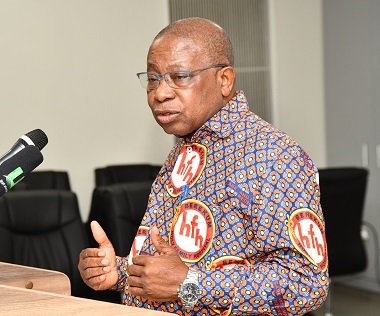Should our Health Minister continue to be at post?

Kwaku Agyemang-Manu
Ghana was the first Sub-Saharan African country to introduce the National Health Insurance Scheme (NHIS) in 2003 through an Act of Parliament (Act 650 Amended Act 852), and its full implementation started in 2004. Under the NHIS Amendment Act 852 (2012), every Ghanaian is required to enroll in the health insurance scheme, which is regarded as one of the social intervention programme introduced by the government to provide financial access to quality and affordable health care to Ghanaians.
The scheme is largely funded by the National Health Insurance Levy (NHIL), which is a 2.5 per cent levy on goods and services collected under the Value Added Tax (VAT), 2.5 percentage points of Social Security and National Insurance Trust (SSNIT) contributions per month.
BACKGROUND OF NHIS
For the benefit of my readers and to refresh their minds about how this laudable initiative came into being, let me take them down memory lane so they can better understand the emergence of the NHIS. The idea to establish the NHIS in Ghana was conceived by former President John Agyekum Kufuor, who used the scheme as a campaign promise in the 2000 general election. He promised to abolish the so-called “Cash and Carry” system of health delivery in the country when he gained power in the county. True to his campaign promise, President Kufuor, after winning the election, introduced the scheme in 2003, during his first term in office.
The main objective of the NHIS was to ensure that it covered all indigenous Ghanaians with the purpose of delivering comprehensive and affordable health care nationwide. The scheme was designed to cover employees both in the formal and informal sectors, the unemployed in rural and urban communities across the country. Since its introduction, the scheme has witnessed remarkable progress in various regimes that came after former President Kufuor’s administration. Former presidents John Evans Atta Mills, John Dramani Mahama and the current President, Nana Addo Dankwa Akufo-Addo, readily embraced the scheme because of its immense benefits to the people and the country in general, and therefore they adopted it as one of the social interventions in the health sector and gave the scheme the needed push.
EXEMPTION OF CERTAIN CATEGORIES
The scope of the scheme was therefore widened to rope in more beneficiaries and was made compulsory by the government based on past experiences that showed that most of the citizens could not engage in the programme and the fact that the government has the duty to protect the general welfare and well-being of all Ghanaians. The flexible nature of the scheme and its lower registration fees made it quite easy for people to register and enroll as members. The scheme was designed to exempt certain categories of people, including older people, from paying certain charges.
Like all human institutions across the globe, the HNIS, despite its successful implementation over the years in the country, has been confronted with a number of challenges and problems, such as poor coverage, poor quality care, corruption, poor stakeholder participation, a lack of clarity on concepts in the policy, intense political influence, and poor funding. These administrative lapses, coupled with other in-built challenges, are indeed, affecting the smooth operation of this laudable scheme. It may interest my readers and patrons to know that the scheme has passed through the hands of many experts on health issues, but to no avail. The current head of the NHIA, Dr. Bernard Okoe Boye, a young and affable medical officer and one-time Deputy Minister of Health, who was appointed by the government recently to manage the place, is overwhelmed with problems, although he is trying his possible best to streamline operations of the NHIS. He has introduced far-reaching ideas to solve some of the problems within the system, but there is still more to be done to make the system productive.
SYNCHRONIZING NHIS AND GHANA CARDS
For instance, plans are well advanced by the new head to team up with his counterparts at the National Identification Authority (NIA) to synchronize the NHIS card with the Ghana Card as a common medium to access primary health care in Ghana. The scheme has also been digitalised to make registration and renewal of cards easier and more effective. Suffice it to say, the NHIS, unlike the “cash and carry” system, which requires upfront payment of medical care and imposes financial stress on Ghanaians in terms of health care delivery, has been a laudable social intervention that needs to be adequately supported by the government if we are to achieve universal health care for all Ghanaians by the year 2024 and beyond.
Frankly speaking, the NHIS has been a source of hope for the majority of people in rural areas who depend on it to access their health needs. However, this all-important scheme is confronted with huge arrears for the service providers, who are finding it difficult to operate the system effectively. When patients visit some of these service providers, they will only be examined by doctors at the Out-Patient-Department (OPD) and told to buy the drugs (even those covered by the scheme) from the pharmacy shops.
HEALTH MINISTER’S ADMISSION OF NHIS FAILURES
Recently, the Minister of Health, Kwaku Agyemang-Manu on whose bosom the whole NHIS lies, admitted that the scheme was not functioning properly as it should, claiming that instead of benefiting from the scheme, poor subscribers were being overcharged and denied necessary services that they had already paid for. He cited his own experiences, claiming that he had to pay for healthcare services out of his pocket when he visited hospitals like Ridge and the University of Ghana Medical Centre (UGMC), even though he is an NHIS subscriber. That was when the minister addressed the Ghana Health Service Senior Managers Meeting 2023 on Tuesday, April 18, 2023.
Indeed, the unfortunate statement from the Health Minister goes to prove he is not on top of issues regarding his outfit, especially the health issues of Ghanaians, which should be his major concern. The entire NHIS programme falls within your purview, and you have to take a keen interest in the scheme and ensure that it works efficiently and satisfactorily. If, as a sector minister, you are complaining and condemning the NHIS as not working, then, as a minister, you don’t know your job and, therefore, you have failed completely. Who do you expect to come and fix the problem when those working there, especially the bosses, take instructions from you, the political head of that place? Elsewhere in certain jurisdictions, you will lose your job immediately for that unguarded and unsavory comment.
MINISTERS MUST OPERATE RESPONSIBLY
Ministers of state are appointed by the President to represent his interests in the portfolios they have been assigned. They are expected to see to the smooth operations of establishments under their various ministries by ensuring that they remain efficient and effective in their daily operations. Failure to ensure that the establishment under their control as ministers of state and political heads is potent and smooth-sailing means they have failed completely and, therefore, are not fit to be in that office.
As a matter of principle, Ghanaians expect people placed in positions of authority by the government to be more responsible and proactive in their daily activities instead of apportioning blame, which is unnecessary. These service providers need money to purchase drugs and other equipment to serve subscribers of the NHIS efficiently. However, if the government defaults on reimbursement, how can they operate effectively?
Contact email/WhatsApp of author:
HYPERLINK “mailto:ataani2000@ yahoo.com”ataani2000@yahoo.com
0277753946/0248933366
By Charles Neequaye













